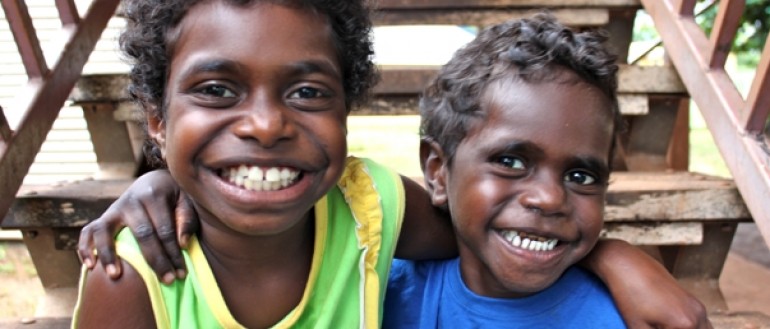- Central Australian Academic Health Sciences Centre
Aims:
- To develop, in partnership with health services and other sectors, a culturally-safe behavioural diabetes prevention program among 6-11 year old Australian Aboriginal and Torres Strait Islander youth with and without overweight or obesity (Tribal Turing Point, adapted as required).
Summary:
The Diabetes across Lifecourse partnership is working with Northern Territory (NT) health and education services, communities and families, to develop and trial a culturally-safe behavioural intervention to reduce diabetes risk in Aboriginal and Torres Strait Islander children (Tribal Turning Point, adapted as required).
Tribal Turning Point is a family-focused group-based behavioural intervention for Native American youth with overweight or obesity (aged 7 to 10 years).
Formative consultation work with Aboriginal communities and service providers to develop an appropriate cultural adaption of Tribal Turning Point (TTP) is currently ongoing (2019 – 2020) in Central Australia and funded by the Central Australian Academic Health Sciences Centre. This formative work will inform the adaptation of TTP to the local context and ensure it aligns with local needs, priorities and cultures. The formative work will use a qualitative action research approach.
Stage 1 involves community engagement to assess the suitability of the intervention. Service providers and families are currently contributing to the development of study design and program content, while considering the applicability of the intervention to the local contexts and suitability.
Stage 2 will focus on the practical supports that would be required to trial the intervention. This will explore training required for staff to deliver the program (content, delivery mode), resources required, delivery methods and timeframes likely to be successful, and what supports are required by families for a “maintenance intervention”.
Stage 3 involves the development of a working group to inform the implementation and evaluation of ongoing work. This Working Group will be a crucial link between the stakeholders and researchers, and will advise regarding an additional two workshops held with families and stakeholders to ensure; program final content is culturally safe and acceptable, the implementation plan considers other community priorities and activities, stakeholders and families are engaged with project implementation plans, and the evaluation is community-informed.
Chief investigators:
- Dr Leisa McCarthy
- Professor Louise Maple-Brown
Project information:
For more information about the project, contact research officer, Athira Rohit.
Project dates:
The Diabetes Prevention project commenced in 2019. This initial phase of program adaption is due for completion in October 2020.
Further information can be accessed through the project website here.

